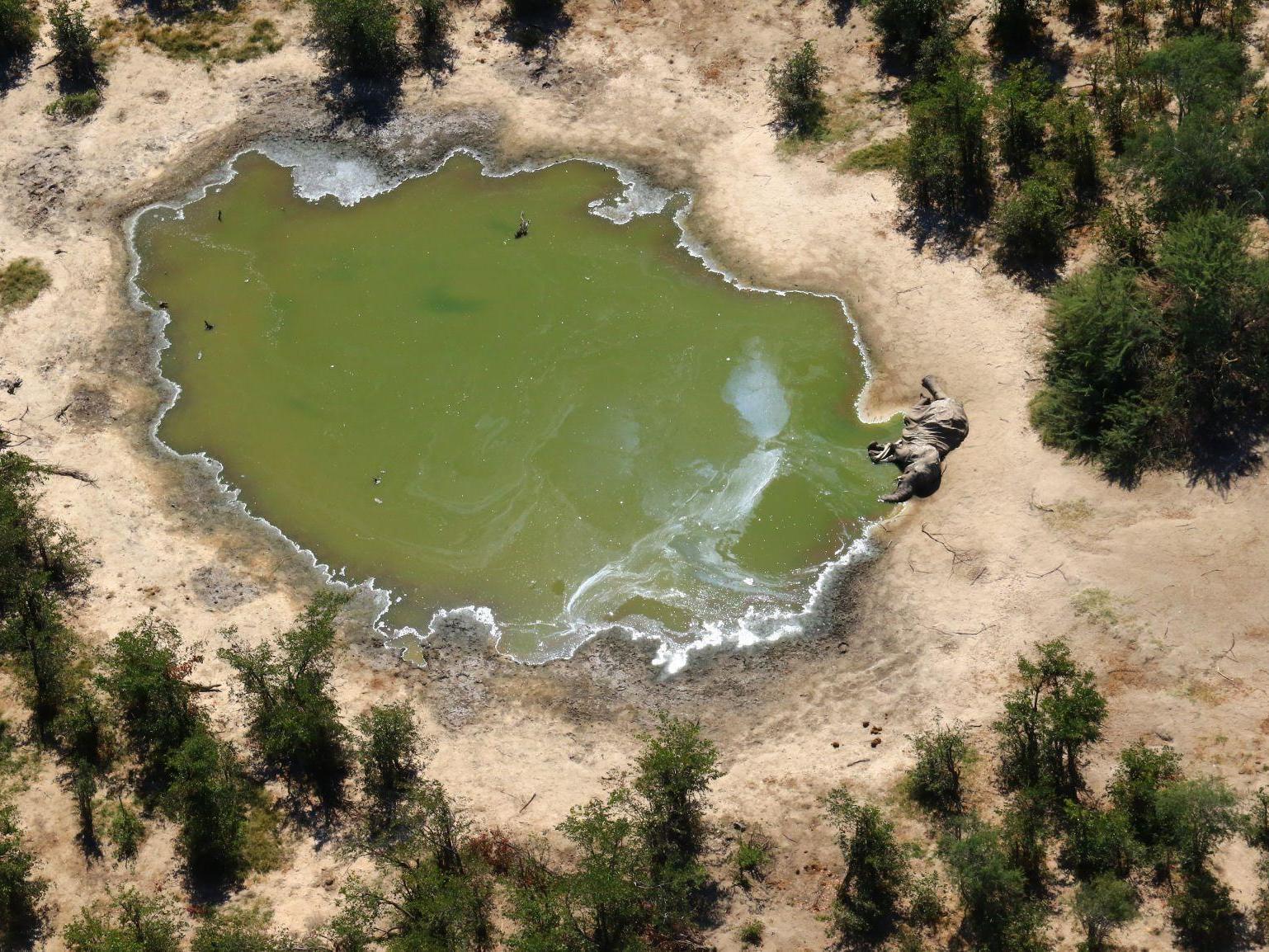Hundreds of elephants mysteriously die in Botswana – and scientists can't rule out illness spreading to humans
‘This is totally unprecedented in terms of numbers of elephants dying in a single event unrelated to drought,’ says conservationist

Your support helps us to tell the story
From reproductive rights to climate change to Big Tech, The Independent is on the ground when the story is developing. Whether it's investigating the financials of Elon Musk's pro-Trump PAC or producing our latest documentary, 'The A Word', which shines a light on the American women fighting for reproductive rights, we know how important it is to parse out the facts from the messaging.
At such a critical moment in US history, we need reporters on the ground. Your donation allows us to keep sending journalists to speak to both sides of the story.
The Independent is trusted by Americans across the entire political spectrum. And unlike many other quality news outlets, we choose not to lock Americans out of our reporting and analysis with paywalls. We believe quality journalism should be available to everyone, paid for by those who can afford it.
Your support makes all the difference.Hundreds of elephants have died mysteriously in Botswana in a matter of weeks and conservationists are urging the government to investigate the “catastrophic” situation.
At least 350 elephants have died since the beginning of May in the Okavango Delta. An aerial survey found 70 per cent of the gentle giants had died near watering holes.
The cause of death had not yet been determined and the Botswana government has claimed that the possibilities the deaths were caused by poaching, poisoning by humans and anthrax have been ruled out.
The tusks on the carcasses were found intact, suggesting ivory poaching was not the cause of death. Anthrax is a naturally-occurring poison found in the soil in parts of Botswana and has been known to occasionally affect wildlife, but authorities say it isn’t the culprit.
Lab results on samples taken from the carcasses are still weeks away, a government official told The Guardian.
Dr Niall McCann of the UK-based charity National Park Rescue described the slew of deaths as “extraordinary” and said local conservationists alerted authorities in early May after counting 169 dead elephants during a three-hour flight over the delta.
“A month later, further investigations identified many more carcasses, bringing the total to over 350,” he told the BBC.
“This is totally unprecedented in terms of numbers of elephants dying in a single event unrelated to drought… It is only the elephants that are dying and nothing else. If it was cyanide used by poachers, you would expect to see other deaths.”
Mary Rice, executive director of the Environmental Investigation Agency, told The Independent: “The recent spate of elephant deaths in Botswana is of real concern.
“It focuses attention on a situation that first came to light almost two months ago; that the current death toll is now at 400 and counting begs the question as to why it has taken so long for the authorities to take urgent action to identify and then mitigate exactly what is causing these deaths.
“Botswana’s reputation as a safe haven and stronghold for wildlife, especially for elephants and rhinos, is now under international scrutiny. The escalating poaching of rhino in Botswana, coupled with this mass die off of elephants, means that this reputation is disappearing fast.
“How Botswana responds to these issues will determine whether it remains a conservation champion or an errant custodian."
Botswana is home to a third of elephants living in Africa. Locals reported seeing the elephants walking around in circles before dying, many falling onto their faces, which could indicate something is attacking their neurological systems.
Dr McCann said disease could not be ruled out and if proven, there is potential for it to cross into the human population much like Covid-19, which is believed to be a zoonotic disease.
He said: “Yes, it is a conversation disaster – but it also has the potential to be a public health crisis.”
Ms Rice added: “Whilst it may make some sense to rule out poaching – the tusks remain intact, but should be removed urgently to avoid opportunistic poaching – and rule out anthrax because Botswana has the means to reliably test for this, poisoning may still be a possibility.
“Testing is the only way to determine whether there has been foul play, whether it is in fact some sort of disease or virus and whether there is any potential associated public health risk. In the absence of this, the number of deaths are only likely to increase.”
The country’s Department of Wildlife issued a press release in May regarding the mysterious deaths and said: “So far, veterinary officers have ruled out possibility of poaching because all carcasses of the elephants were found intact.
“In this regard, the public is cautioned against the consumption of meat of such dead animals as that may be detrimental to health.”
The public was also urged to report any other citing of dead elephants to the authorities.
Join our commenting forum
Join thought-provoking conversations, follow other Independent readers and see their replies
Comments